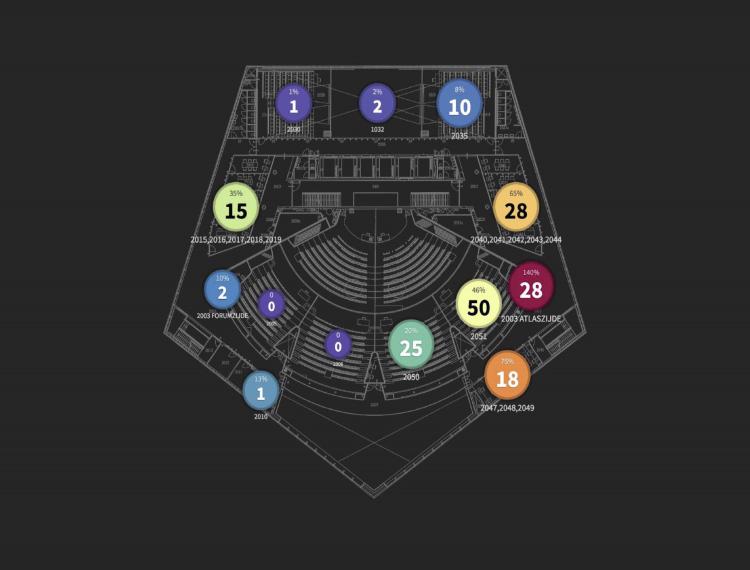Using intelligent building technology to solve the problem of inefficient classroom utilisation

Scientia, the global leader in academic planning, scheduling, and resource management solutions for the Education sector, is today (3 Mar) announcing its partnership with Netherlands-based Lone Rooftop, providers of cloud software applications which are designed to optimise the utilisation of university and college buildings.
As increasing numbers of institutions are reaching the limits of their teaching capacity, they are looking to technology to help them optimise existing real estate.
By using location data anonymously sourced from existing Wi-Fi networks, the Lone Rooftop Position Intelligence Engine (PIE) is able to calculate the specific location of people in all parts of buildings, quickly providing timetabling teams and estate managers with insightful and actionable intelligence.
Scientia is using this technology to support its global customer base with clearer insights into room occupancy rates for university buildings, helping to address the challenge of under-utilised buildings and excess capacity across campus.
The ability for colleges to gain accurate usage data for buildings, rooms and teaching spaces will drive more efficient scheduling of rooms and resources, significantly reducing costs – including the building of unnecessary, additional teaching space.
This technology is already being used at Wageningen University & Research in the Netherlands. They were approaching the limits of capacity and needed to find a smarter way to manage rooms and schedules.
By using occupancy measurements, scheduling has become more efficient for each semester and cases where alternative smaller rooms were more appropriate have been identified.
This helps the timetabling team to accommodate more students within the university’s existing capacity. Dashboard for the web application, showing how many students are present in each classroom.
“With the single push of a button, my team gains insight into lectures that are consistently underutilised and how many ‘no-shows’ have taken place in a period, or for specific lectures” said Fred Jonker, Information Services policy officer at Wageningen University & Research.
Jonathan Armstrong, Partner Manager at Scientia, comments:
“This is a strong partnership that brings a best-of-breed approach to the market. Our timetabling and room booking products are complemented with real-time data that displays how space is actually being used, versus the planned classes. This is used to realise significant cost and space savings, by addressing smaller-than-planned and shorter-than-planned classes, or complete no-shows. The technology will enable our customers to schedule more lectures and increase student numbers, all within their existing building capacity.”
Marcel Lamers, CEO at Lone Rooftop, adds:
“We believe that Intelligent Buildings – those that can identify the real-time location of people and fully adapt to that – can encourage process changes that will ultimately lead to the optimisation of space, time and energy, and a reduction of waste. The value of our technology can be extended to drive improvements in facilities and real estate management, security, climate, lighting and energy management, among other possibilities. This partnership has great potential for Scientia’s customers when it comes to efficient use of building space.”
About Scientia: With more than 450 clients across six continents, Scientia is the leading provider of academic timetabling and resource scheduling software for the higher education sector. We deliver end-to-end solutions for the challenges faced by institutions in optimising their most valuable assets: time, space and equipment.
Trusted by many of the world’s top universities and business schools, Scientia has nearly 30 years’ experience of supporting institutions to exceed their strategic goals, such as enhancing the student experience, improving space utilisation and reducing costs.
About Lone Rooftop: An Amsterdam-based company that develops technology to prepare buildings for the future; efficient, sustainable and optimised. Their Position Intelligence Engine (PIE) technology is a platform that calculates the position of people inside buildings based on WiFi and sensors. A growing number of complementary smart applications are being developed on top of this platform. As well as existing clients in the Higher Education sector, Lone Rooftop’s technology is also used by a growing number of prominent corporate clients including ABN AMRO Bank and others in the insurance, energy, accounting and consultancy sectors.











Responses